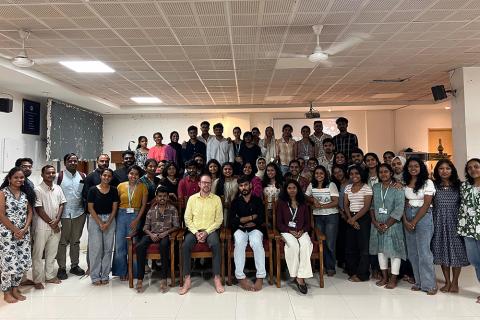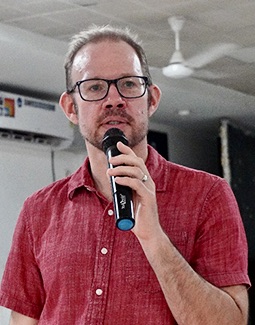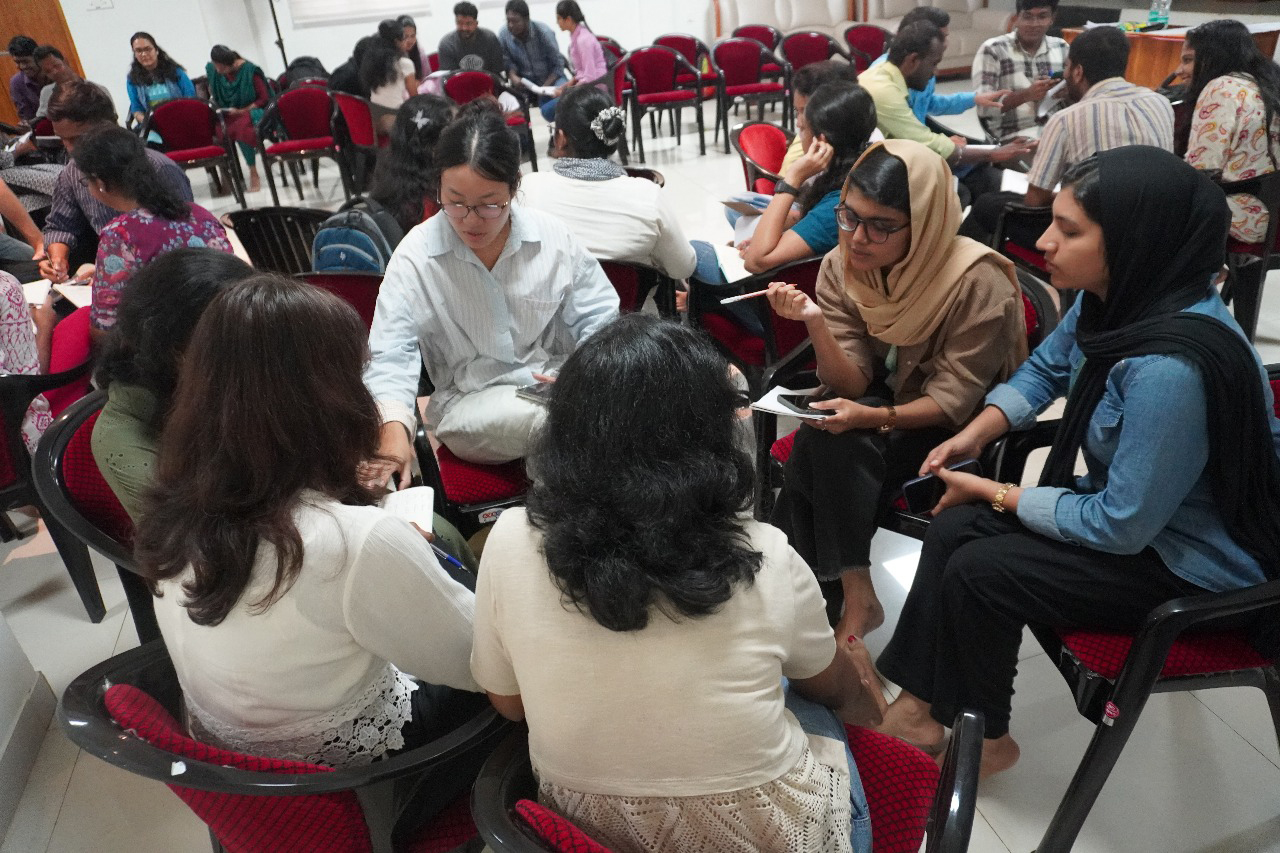FSU Faculty Member Shares Qualitative Research Expertise with University of Kerala Colleagues

This summer, Dr. John Mathias was the keynote speaker at a one-day Workshop on Qualitative Research and Ethnography at the Central University of Kerala, Department of Social Work in southern India.
Dr. Mathias started the workshop by discussing the nature and scope of qualitative research, highlighting its focus on depth, complexity and the human experience. “Qualitative research is not about generalizing,” he emphasized. “It is about understanding people’s perspectives, intentions and meanings they attach to their lives."
He shared examples from an ongoing study using arts-based methods and stressed the importance of flexibility, nuance, and context in conducting and analyzing qualitative studies.
Dr. Mathias also worked directly with workshop participants through an activity that encouraged critical thinking about qualitative research methods and clarified common misconceptions.

The Ethnographic Research Approach
During the workshop, Dr. Mathias shared his own ethnographic fieldwork experience in Kerala. In the region, he conducted participant observation by engaging directly in community life, including activities such as organic rice harvesting. “These immersive methods help researchers gain a deeper, insider understanding of people’s lives and cultural practices,” he explained.
He also discussed his research in Florida on environmental justice, focusing on the unequal impact of natural disasters like hurricanes and tornadoes on different populations. “Although such events affect entire regions, the recovery process often reflects social inequalities,” he described.
To explore these issues, Dr. Mathias used a mixed methods approach, combining surveys with open-ended questions, audio recordings and focus group discussions, to capture the voice and experiences of particularly vulnerable populations.
An Immersive Research Experience
The workshop also included an interactive session that allowed participants to actively engage in a qualitative research method.
Participants were divided into small groups (5-6 participants per group) and asked to consider a qualitative research question they wanted to explore, along with a suitable method for studying the question. The brainstorming session was followed by a brief discussion on what the groups came up and a brief class on ethnography to deepen the understanding of its application in research.
To conclude the immersive experience, workshop participants were then divided into groups of three to practice the ethnographic fieldwork methods. In each group, one person was interviewed, one person conducted the interview and the third person observed and took notes on the process. Each participant had a chance to try out each role.

The Case-Based Approach
Dr. Mathias concluded the workshop with a discussion of the case-based approach to qualitative research, where analysis begins with a few individual cases rather than a predetermined sample. “These initial cases help to develop hypotheses, which are then tested through similar and contrasting cases,” he elucidated, drawing on his own research with environmental activists as an example.
“Each activist’s personal journey can be treated as a case to explore patterns and differences,” Dr. Mathias shared. “This method allows for identifying common themes while acknowledging complexity and exceptions, contributing to a deeper understanding of social phenomena.”
Environmental Justice
Throughout the workshop, Dr. Mathias drew directly from his own research, which is directly related to the Kerala region of India. He recently published some of his research on environmental justice activists in Kerala in a book titled Uncommon Cause: Living for Environmental Justice in Kerala, published in 2024 by the University of California Press. His research followed local environmental justice activists and how they either seek to aid, avoid or attempt to overcome conflicts between their environmental causes and their community ties.
The workshop introduced participants to the concept of environmental social work and environmental justice, focusing on how certain vulnerable populations can be disproportionately impacted by environmental issues.
“In a coastal state like Kerala, people are experiencing intensifying natural disasters, sea-level rise, floods, and heat waves,” Mathias explained, “Social workers cannot address these issues alone, but they have crucial roles to play.

